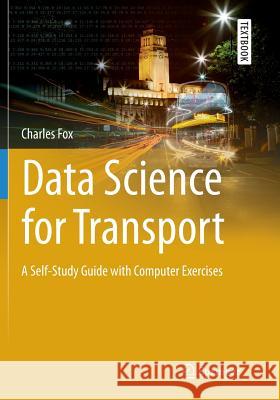Data Science for Transport: A Self-Study Guide with Computer Exercises » książka
topmenu
Data Science for Transport: A Self-Study Guide with Computer Exercises
ISBN-13: 9783030102913 / Angielski / Miękka / 2019 / 185 str.
Kategorie BISAC:
Wydawca:
Springer
Seria wydawnicza:
Język:
Angielski
ISBN-13:
9783030102913
Rok wydania:
2019
Wydanie:
Softcover Repri
Ilość stron:
185
Waga:
0.36 kg
Wymiary:
25.4 x 17.78 x 1.09
Oprawa:
Miękka
Wolumenów:
01
Dodatkowe informacje:
Wydanie ilustrowane











